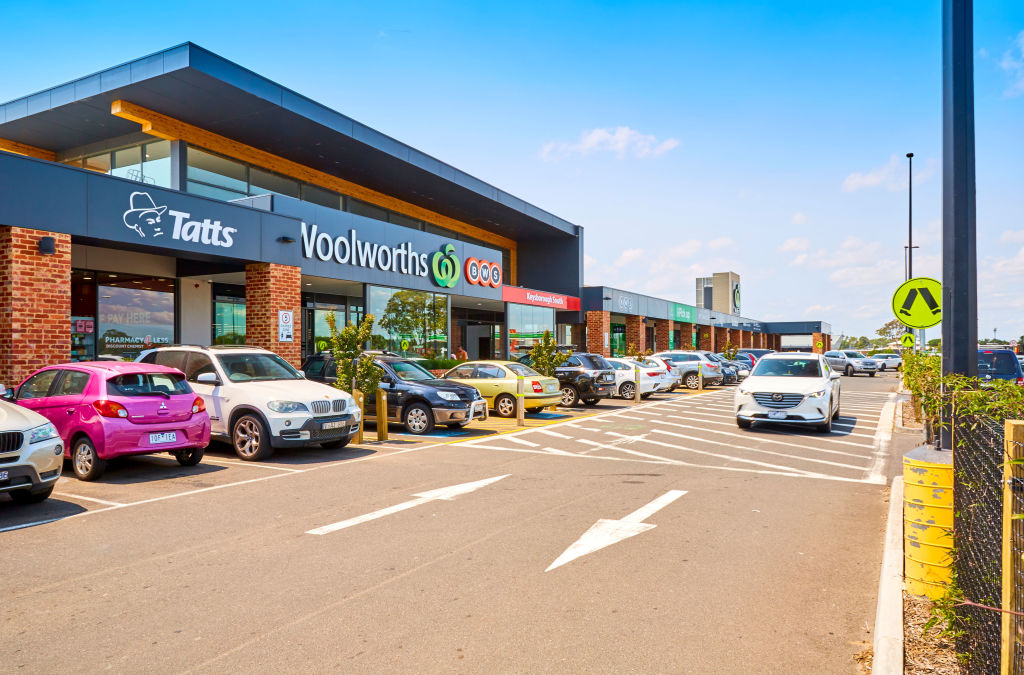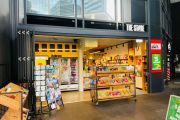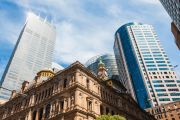
Woolworths offloads two supermarkets as investors look for secure income during the coronavirus downturn
Local investors have snapped up two Woolworths supermarket-anchored centres – part of a sale-and-leaseback campaign by the grocery giant – for more than $59 million, in a sign that the coronavirus pandemic has not stopped buyers from seeking out “non-discretionary” retail properties with secure incomes.
Colliers International sold the Woolworths Wadalba on the NSW Central Coast for $26.15 million last week. Days later CBRE agents finalised the sale of the Keysborough South Shopping Centre, in Melbourne, for $33.13 million.
The sales were part of a portfolio of four recently-built assets being offered on a sale-and-leaseback arrangement by Woolworths, also including the Spring Farm Shopping Centre near Sydney’s Campbelltown and the Bakewell Shopping Centre in the Darwin suburb of Palmerston North.
While terms of the deal were still confidential, Colliers International agent James Wilson said progress had also been made on the Spring Farm deal.
“The Spring Farm Shopping Centre was incredibly well received with competitive bidding. As a result of this, we are now in due diligence with a purchaser.”
Jacob Swan of JLL, who is handling the Northern Territory deal, said they had received a strong response to the expressions of interest campaign and “anticipate to have a deal squared away in the coming days”.
Fresh leases
All properties were being offered with new 10-year leases to Woolworths.
Woolworths Wadalba sold on a 5.69 per cent yield to a high-net-worth Victorian investor, according to Colliers.
The 3905-square-metre centre, anchored by a Woolworths and BWS, has a net yearly income $1.49 million, 96 per cent of which is paid by Woolworths.
The Keysborough buyer beat out rival offers from offshore buyers to secure the property, which sits on a 18,440-square-metre site and was sold on a 5.4 per cent yield.
Located on the corner of Chapel and Hutton roads, the centre also comprises eight specialty retailers and 277 car spaces.
The property was sold with a 10-year-lease to Woolworths. The total net income is $1.79 million a year.
COVID-19 no barrier
Listing agent for the Keysborough Justin Dowers of CBRE said the demand had been substantially boosted by the negative COVID-19 impact on alternative asset classes.
“This is the quintessential defensive commercial property asset underpinned by a strong non-discretionary spend tenancy profile of 91 per cent, including a 77 per cent GLA weighting to Woolworths,” Mr Dowers said.
“These are sought-after assets at any time in the cycle, much more so in the extraordinary circumstances in which we currently find ourselves.”
Colliers’ Alex James-Elliot, who worked on the Wadalba campaign with Mr Wilson, said the current investment climate was very different to that of the global financial crisis in 2008-09.
“Purchasers have noted that the key difference between this market and the GFC is that the gearing levels are far more sustainable and there are plenty of purchasers who are looking to take advantage of the market conditions,” Mr James-Elliot said.
“We attribute this heightened investor interest in the supermarket asset class due to their sustained essential role in Australia’s food supply during these uncertain times … Centres anchored by supermarkets will continue to thrive throughout these uncertain times due to the dependence from the public on these stable establishments.”










